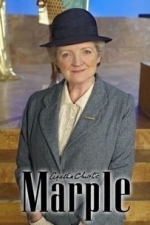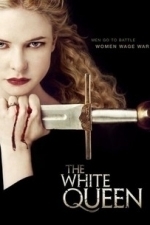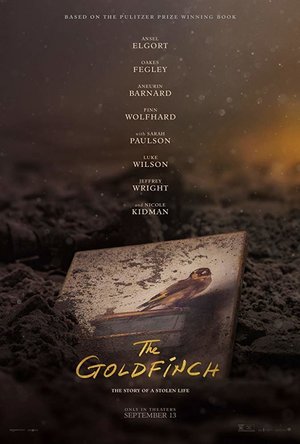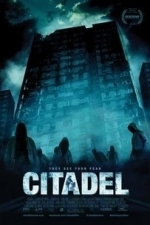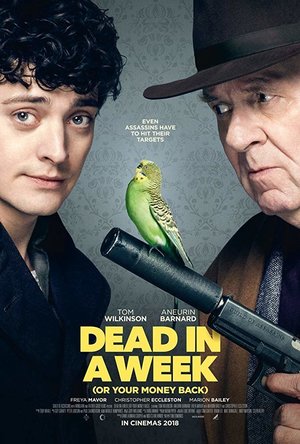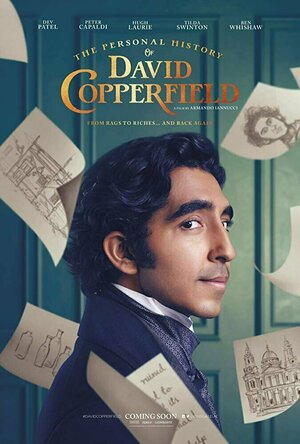Search
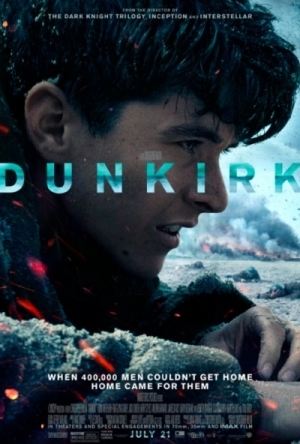
Dunkirk (2017)
Movie Watch
In May 1940, Germany advanced into France, trapping Allied troops on the beaches of Dunkirk. Under...
Gareth von Kallenbach (965 KP) rated The Goldfinch (2019) in Movies
Sep 13, 2019
The life of Theodore Decker (Ansel Elgort and Oakes Fegley) is for every changed when his mother is killed in an explosion at an art museum. In the same tragic moments when his mother is killed he also makes a decision that will help shape the rest of his life, he takes a rare and valuable painting in the chaos of surrounding. This painting, The Goldfinch, wasn’t something he planned on taking, but having it will be the only thing that brings him comfort in the days ahead. After the tragedy he is temporarily placed with a family he really enjoys. He has a best friend, Andy Barbour (Ryan Foust), and a mother figure in Mrs. Barbour (Nicole Kidman). Theodore also makes a connection to a girl Pippa (Aimee Laurence and later by Ashleigh Cummings) and her caretaker Hobie (Jeffrey Wright). Pippa and her uncle Welty (Robert Joy) were standing right next to Theodore when the explosion that killed his mother happened. Welty also passes away during the explosion but not before he would influence Theodore to take the painting. Thus changing the trajectory of the rest of his life.
This film is based on the Pulitzer Prize winning book by Donna Tartt of the same name. I have not read the book so I cannot make a comparison between the two. The director, John Crowley (Brooklyn and Closed Circuit) makes a visually beautiful film. You can tell that care was taken to make the film have a certain feel and texture. The cast is very good, including those mentioned above and Finn Wolfhard, Sarah Paulson, Aneurin Barnard and more. I particularly thought the casting of Oakes Fegley as the Young Theodore and Ansel Elgort as the adult Theodore was particularly good. The story skipped in sequence and you could see the similarity in the two actors as on character. The overall story is original and fascinating. But the film jumped around and made it feel choppy. Also the run time of two hours and twenty nine minutes somehow felt longer than that. The story moved at a snail’s pace and really seemed like it had no direction. Then in the final 10 minutes it wrapped up in a flash.
I thought overall the performances were good and the story was interesting but how it was presented really lacked. It was slow and developed in a non-compelling way. I could definitely see potential but it fell a little short for me. It did make me want to read the book and see how the author meant for the story to be told. I would recommend seeing this in a theater for the cinematography because it was beautifully shot.
This film is based on the Pulitzer Prize winning book by Donna Tartt of the same name. I have not read the book so I cannot make a comparison between the two. The director, John Crowley (Brooklyn and Closed Circuit) makes a visually beautiful film. You can tell that care was taken to make the film have a certain feel and texture. The cast is very good, including those mentioned above and Finn Wolfhard, Sarah Paulson, Aneurin Barnard and more. I particularly thought the casting of Oakes Fegley as the Young Theodore and Ansel Elgort as the adult Theodore was particularly good. The story skipped in sequence and you could see the similarity in the two actors as on character. The overall story is original and fascinating. But the film jumped around and made it feel choppy. Also the run time of two hours and twenty nine minutes somehow felt longer than that. The story moved at a snail’s pace and really seemed like it had no direction. Then in the final 10 minutes it wrapped up in a flash.
I thought overall the performances were good and the story was interesting but how it was presented really lacked. It was slow and developed in a non-compelling way. I could definitely see potential but it fell a little short for me. It did make me want to read the book and see how the author meant for the story to be told. I would recommend seeing this in a theater for the cinematography because it was beautifully shot.
Darren (1599 KP) rated Citadel (2012) in Movies
Oct 14, 2019
Characters – Tommy is a father with agoraphobia after he saw his wife attacked by a group of children, he is trying to be the good father for his new born child, but his fears are controlling the situation, he sees children trying to take his child, he needs to face his fears to make it through this trauma he is going through. Priest is a renegade man that is aggressively searching for a way to bring down the feral children, he sees Tommy as a chance to get the job done, even if it is against what his religion states. Marie is one of the social workers that will help Tommy, she is trying to help him through the medical side even if she is the one that puts him in contact with the priest. The Feral Children are the highlight of the film because they are genuinely frightening when they attack.
Performances – Aneurin Barnard in the leading role does make us feel for his character, we believe he has been through the trauma and is the desperation to save his family. James Cosmo is fun to watch as anti-priest figure. Wunmi Mosaku doesn’t do anything wrong in the supporting role, if only we could have seen more from the character.
Story – The story here follows a new father that is dealing with his own trauma while raising his new born child, which will see him needing to face off against feral child that feed on people’s fears. The early thing that must be pointed out here, comes from the idea that we are not full convinced that we are seeing the fears of the character dealt with, for the most part we are seeing one man terrorised but even the people without the fear seem to be targets too, this mostly confuses the rule point in place. the idea that the feral child live in the abandoned flat complex doesn’t improve on things either because you would think more incidents would happen. The part of the story that does standout and is interesting to watch would be seeing how Tommy is dealing with his own traumas while remaining strong facing the possibility of not being able to raise his own child because of his problems, sadly we don’t see enough of this addressed with the horror side of the story taking over, which simply put, isn’t as interesting.
Horror – The horror starts of being home invasion like horror, which worked for the illness Tommy had, but when we enter the flats, it does become the highlight of the action in the film, feeling dark, scary with anything able to jump out to get them.
Settings – The settings show us the run down neighbourhood in which Tommy lives, the support groups around it and most importantly the empty flat block which has the feral children in it.
Special Effects – The effects are used mostly look practical, with the moments surrounding the feral child being the most notable and scary ones.
Scene of the Movie – Inside the flat block.
That Moment That Annoyed Me – It breaks the rules it sets up too easily.
Final Thoughts – This is a horror film that does take its time getting going, one the chaos is unleashed with get a highly intense final act which ramps the fear up to the max.
Overall: Slow Start, Strong Finish.
Performances – Aneurin Barnard in the leading role does make us feel for his character, we believe he has been through the trauma and is the desperation to save his family. James Cosmo is fun to watch as anti-priest figure. Wunmi Mosaku doesn’t do anything wrong in the supporting role, if only we could have seen more from the character.
Story – The story here follows a new father that is dealing with his own trauma while raising his new born child, which will see him needing to face off against feral child that feed on people’s fears. The early thing that must be pointed out here, comes from the idea that we are not full convinced that we are seeing the fears of the character dealt with, for the most part we are seeing one man terrorised but even the people without the fear seem to be targets too, this mostly confuses the rule point in place. the idea that the feral child live in the abandoned flat complex doesn’t improve on things either because you would think more incidents would happen. The part of the story that does standout and is interesting to watch would be seeing how Tommy is dealing with his own traumas while remaining strong facing the possibility of not being able to raise his own child because of his problems, sadly we don’t see enough of this addressed with the horror side of the story taking over, which simply put, isn’t as interesting.
Horror – The horror starts of being home invasion like horror, which worked for the illness Tommy had, but when we enter the flats, it does become the highlight of the action in the film, feeling dark, scary with anything able to jump out to get them.
Settings – The settings show us the run down neighbourhood in which Tommy lives, the support groups around it and most importantly the empty flat block which has the feral children in it.
Special Effects – The effects are used mostly look practical, with the moments surrounding the feral child being the most notable and scary ones.
Scene of the Movie – Inside the flat block.
That Moment That Annoyed Me – It breaks the rules it sets up too easily.
Final Thoughts – This is a horror film that does take its time getting going, one the chaos is unleashed with get a highly intense final act which ramps the fear up to the max.
Overall: Slow Start, Strong Finish.
Lucy Buglass (45 KP) rated Dead In A Week (Or Your Money Back) (2018) in Movies
Jun 20, 2019
Dark comedy at its finest
This review discusses dark topics such as death and suicide. Reader discretion advised.
Getting comedy right is difficult enough, let alone trying to do it with sensitive topics. But Dead In A Week (or your money back) hits the nail on the head. After several failed suicide attempts, William (Aneurin Barnard) signs a contract with veteran assassin Leslie (Tom Wilkinson), who promises he’ll be dead within the week. This simple concept results in 1 hour and 30 mins of pure entertainment.
Though explicit in the way it discusses suicide, there is a reason for this. Right from the start, William is positioned as an incredibly depressed, isolated failed writer, who is struggling to see the point in living. He is very open about this fact, and spends a lot of time planning ways he could do it, accompanied by a darkly funny montage of the ways he’s tried. He is a troubled character that you can’t help but feel sorry for.
What makes this film even more interesting is the way it makes you sympathise with both target and killer. Leslie is trying his best to avoid retirement, and sees William as an answer to his prayers. If he kills him, he’ll fill his quota, and all will be well. This creates a paradox where you want both men to succeed, but you know that’s impossible.
William changes his mind about the contract when a publisher takes interest in his novel, and he begins to fall in love with Ellie (Freya Mavor), the assistant who called him regarding his latest story. This encounter comes with some rather frank and heartwarming messages about life, reminding us how precious life can be if you give it a chance.
Of course, the film doesn’t just end there. After William’s 360, Leslie is having none of it, and for the rest of the film we see this young writer trying to outrun a seasoned assassin. Leslie’s boss Harvey (Christopher Eccleston) is hot on his tail as well, tired of giving the old man too many chances. It’s a classic tale of a failed assassin, flipped entirely on its head.
Filled with some brilliant twists and turns, the script is formulaic yet hugely entertaining, with some laugh out loud moments throughout. It will certainly appeal to those who like their humour a little darker, with its use of comedic timing and deadpan delivery. It addresses so much in a short space of time, adding depth where needed.
Leslie’s wife Penny (Marion Bailey) adds her own comic relief to the situation, with a delightful satire on middle-class culture. Whilst her husband is trying to keep a dangerous job he loves so much, she’s more concerned about beating her church rivals in a cushion competition. The parallels between the couple are simultaneously heartwarming and awkward, and I enjoyed the way they bounced off each other throughout.
This was a thoroughly enjoyable film, with some unexpectedly touching moments. I really connected with certain characters and loathed others, allowing me to become fully invested in the film. The encounter between these two men should have ended one way, but the two embark on a journey that changes their lives for the better. Underneath all the humour comes an understanding of mental health issues, and sympathy for those who struggle.
This was Tom Edmund’s feature length debut, after directing a few short films. It’s an impressive first film with good pacing, solid characters, and a well-polished look throughout. It was an ambitious first feature length, but it certainly delivered.
https://lucygoestohollywood.com/2019/05/06/dark-comedy-at-its-finest-my-thoughts-on-dead-in-a-week-or-your-money-back/
Getting comedy right is difficult enough, let alone trying to do it with sensitive topics. But Dead In A Week (or your money back) hits the nail on the head. After several failed suicide attempts, William (Aneurin Barnard) signs a contract with veteran assassin Leslie (Tom Wilkinson), who promises he’ll be dead within the week. This simple concept results in 1 hour and 30 mins of pure entertainment.
Though explicit in the way it discusses suicide, there is a reason for this. Right from the start, William is positioned as an incredibly depressed, isolated failed writer, who is struggling to see the point in living. He is very open about this fact, and spends a lot of time planning ways he could do it, accompanied by a darkly funny montage of the ways he’s tried. He is a troubled character that you can’t help but feel sorry for.
What makes this film even more interesting is the way it makes you sympathise with both target and killer. Leslie is trying his best to avoid retirement, and sees William as an answer to his prayers. If he kills him, he’ll fill his quota, and all will be well. This creates a paradox where you want both men to succeed, but you know that’s impossible.
William changes his mind about the contract when a publisher takes interest in his novel, and he begins to fall in love with Ellie (Freya Mavor), the assistant who called him regarding his latest story. This encounter comes with some rather frank and heartwarming messages about life, reminding us how precious life can be if you give it a chance.
Of course, the film doesn’t just end there. After William’s 360, Leslie is having none of it, and for the rest of the film we see this young writer trying to outrun a seasoned assassin. Leslie’s boss Harvey (Christopher Eccleston) is hot on his tail as well, tired of giving the old man too many chances. It’s a classic tale of a failed assassin, flipped entirely on its head.
Filled with some brilliant twists and turns, the script is formulaic yet hugely entertaining, with some laugh out loud moments throughout. It will certainly appeal to those who like their humour a little darker, with its use of comedic timing and deadpan delivery. It addresses so much in a short space of time, adding depth where needed.
Leslie’s wife Penny (Marion Bailey) adds her own comic relief to the situation, with a delightful satire on middle-class culture. Whilst her husband is trying to keep a dangerous job he loves so much, she’s more concerned about beating her church rivals in a cushion competition. The parallels between the couple are simultaneously heartwarming and awkward, and I enjoyed the way they bounced off each other throughout.
This was a thoroughly enjoyable film, with some unexpectedly touching moments. I really connected with certain characters and loathed others, allowing me to become fully invested in the film. The encounter between these two men should have ended one way, but the two embark on a journey that changes their lives for the better. Underneath all the humour comes an understanding of mental health issues, and sympathy for those who struggle.
This was Tom Edmund’s feature length debut, after directing a few short films. It’s an impressive first film with good pacing, solid characters, and a well-polished look throughout. It was an ambitious first feature length, but it certainly delivered.
https://lucygoestohollywood.com/2019/05/06/dark-comedy-at-its-finest-my-thoughts-on-dead-in-a-week-or-your-money-back/
Bob Mann (459 KP) rated The Personal History of David Copperfield (2019) in Movies
Jan 8, 2021
The fantastic ensemble cast (1 more)
Great directing and editing
Effortlessly stylish and entertaining
The Personal History of David Copperfield starts with the young man (Dev Patel) regaling a theatre audience with a reading of his autobiography. This immediately pitches him into witnessing his own birth to widowed single mother Clara (the wonderful Morfydd Clark, or "Saint Maud" fame). From there, Copperfield goes helter-skelter into a rollercoaster life encompassing workhouse-bottling poverty, fish-gutting and rich gentlemanly pursuits.
You have to admire the artistry of Dickens. Of course, I am aware of some of the plethora of rich and complex characters that Dickens imagined including the rascally Mr Micawber (Peter Capaldi) and the ever-'umble but conniving Uriah Heep (Ben Wishaw). But the story is literally rammed with amazing characters. It's almost as if Dickens conjured up full pen-portraits of 30 different characters and then contrived to fit them somehow into the story. Remarkably rich.
There's a very striking nature to the casting of this movie. It had me going "Wha?? Who??" while watching it. Because the roles are cast multi-culturally, without nature to the demographics of the time and - crucially - to the relationship between the characters. For example, with Copperfield, you might - with a bit of a squint - play along with it since we never see the father. But then the mother of the (very-much-white) Steerforth (Aneurin Barnard) turns up as Nigerian-born actress Nikki Amuka-Bird (who is fabulous). Benedict Wong also turns up as legal director Mr Wickfield. It was as if the casting was done purely on talent and regardless of race and appropriateness for the Dickensian times. Which is refreshingly different and much to be welcomed.
Sarah Crowe has won a number of awards for her casting of the film and a BAFTA nomination too. And well deserved, since she pulls in a truly stellar ensemble cast. As well as those mentioned above, we also have Hugh Laurie as the addled Mr Dick; Tilda Swinton as Betsey Trotwood; Anna Maxwell Martin as Mrs Strong; Paul Whitehouse as Daniel Peggotty; and Gwendoline Christie as the evil Mrs Murdstone. Even Daisy May Cooper (from TV's "This Country") turns up and is particularly effective as Peggoty - the housemaid and friend to Copperfield. And casting Morfydd Clark in a second role as the scatty love interest Dora Spenlow is also both brilliant and provocative.
With such a wealth of talent on show, it's difficult to pull out specific performances. This is a movie that genuinely deserved to make the SAG Ensemble award list.
When I saw that the director of this was Armando Iannucci, I raised an eyebrow. For the subject matter seemed to be at right angles to the normal satirical thrust of the director. But the guy behind "The Thick of It" and "The Death of Stalin" reigned in his most satirical barbs and - together with his regular collaborative screenwriter Simon Blackwell - turned the movie into a delightfully quirky telling of the story. I felt that there was something of the Guy Ritchie "Sherlock Holmes" behind the very effective use of the cutting and on screen handwriting.
In that cutting, many of the scene transitions are masterfully done. So a special shout-out to the film editors Mick Audsley and Peter Lambert here. A memorable example is a flashback in the "boat house" where a background tarpaulin blows away to reveal Steerforth on horseback in France: simply breathtaking.
This was a refreshing movie. Endlessly innovative and entertaining. It makes me even possibly want to revisit trying to read the book again! Highly recommended.
(For the full graphical review, please check out the review here - https://rb.gy/ba74zo ).
You have to admire the artistry of Dickens. Of course, I am aware of some of the plethora of rich and complex characters that Dickens imagined including the rascally Mr Micawber (Peter Capaldi) and the ever-'umble but conniving Uriah Heep (Ben Wishaw). But the story is literally rammed with amazing characters. It's almost as if Dickens conjured up full pen-portraits of 30 different characters and then contrived to fit them somehow into the story. Remarkably rich.
There's a very striking nature to the casting of this movie. It had me going "Wha?? Who??" while watching it. Because the roles are cast multi-culturally, without nature to the demographics of the time and - crucially - to the relationship between the characters. For example, with Copperfield, you might - with a bit of a squint - play along with it since we never see the father. But then the mother of the (very-much-white) Steerforth (Aneurin Barnard) turns up as Nigerian-born actress Nikki Amuka-Bird (who is fabulous). Benedict Wong also turns up as legal director Mr Wickfield. It was as if the casting was done purely on talent and regardless of race and appropriateness for the Dickensian times. Which is refreshingly different and much to be welcomed.
Sarah Crowe has won a number of awards for her casting of the film and a BAFTA nomination too. And well deserved, since she pulls in a truly stellar ensemble cast. As well as those mentioned above, we also have Hugh Laurie as the addled Mr Dick; Tilda Swinton as Betsey Trotwood; Anna Maxwell Martin as Mrs Strong; Paul Whitehouse as Daniel Peggotty; and Gwendoline Christie as the evil Mrs Murdstone. Even Daisy May Cooper (from TV's "This Country") turns up and is particularly effective as Peggoty - the housemaid and friend to Copperfield. And casting Morfydd Clark in a second role as the scatty love interest Dora Spenlow is also both brilliant and provocative.
With such a wealth of talent on show, it's difficult to pull out specific performances. This is a movie that genuinely deserved to make the SAG Ensemble award list.
When I saw that the director of this was Armando Iannucci, I raised an eyebrow. For the subject matter seemed to be at right angles to the normal satirical thrust of the director. But the guy behind "The Thick of It" and "The Death of Stalin" reigned in his most satirical barbs and - together with his regular collaborative screenwriter Simon Blackwell - turned the movie into a delightfully quirky telling of the story. I felt that there was something of the Guy Ritchie "Sherlock Holmes" behind the very effective use of the cutting and on screen handwriting.
In that cutting, many of the scene transitions are masterfully done. So a special shout-out to the film editors Mick Audsley and Peter Lambert here. A memorable example is a flashback in the "boat house" where a background tarpaulin blows away to reveal Steerforth on horseback in France: simply breathtaking.
This was a refreshing movie. Endlessly innovative and entertaining. It makes me even possibly want to revisit trying to read the book again! Highly recommended.
(For the full graphical review, please check out the review here - https://rb.gy/ba74zo ).
Bob Mann (459 KP) rated Dunkirk (2017) in Movies
Sep 29, 2021
A war vehicle running low on fuel.
The words “Christopher Nolan” and “disappointment” are not words I would naturally associate… but for me, they apply where “Dunkirk” is concerned.
It promised so much from the trailer: a historical event of epic proportions; Kenneth Branagh; Tom Hardy; Mark Rylance; Hans Zimmer on the keys; the director of such classics as “The Dark Knight”; “Inception” and “Interstellar” : what could go wrong?
But it just doesn’t work and I’ve spent the last 24 hours trying to unpick why.
A key problem for me was the depiction of the beach itself. The film eschews CGI effects – a move that I would normally approve of – in favour of the use of “practical effects” and the involvement of “thousands of extras” (as the rather glutinously positive Wiki entry declares). Unfortunately for the movie, there were some 400,000 troops marooned in this last patch of civilisation ahead of the Nazi hoard, and all of the shots refuse to acknowledge this scale of potential human tragedy. Yes, there are individual scenes of horror, such as the soldier walking into the sea against the impassive stares of the young heroes. But nothing of scale. At times I thought I’d seen more people on the beach on a winter’s day in Bournemouth! In the absence of a co-production with China, and the provision of the volume of extras as in “The Great Wall“, CGI becomes a necessary evil to make the whole exercise believable.
What it was really like…. one of the famous paintings by Charles Cundall (Crown copyright).
My disquiet at this deepened when we got to the sharp end of the rescue by the “small boats”. In my mind (and I’m NOT quite old enough to remember this!) I imagine a sea full of them. A sight to truly merit Branagh’s awed gaze. But no. They might have been “original” vessels…. but there was only about half a dozen of them. A mental vision dashed.
Did I feel a spot of rain? Looking to unfriendly skies on the River Mole.
The film attempts to tell the story from three perspectives: from the land; from the sea and from the air. The sea though gets the lion’s share of the film, and there is much drowning that occurs that (I am aware) was distressing for some in the audience.
Styles going in One Direction…. down.
Nolan also pushes his quirky “timeline” manipulation too far for an audience that largely expects a linear telling of a classic tale. It’s day; it’s night; the minesweeper’s sailing; then sunk; then sailing again; a Spitfire crashes, then crashes again from a different perspective. I know many in the audience just didn’t ‘get’ that: leaving them presumably very confused!
That being said, the film is not a write off, and has its moments of brilliance. Kenneth Branagh (“Jack Ryan: Shadow Recruit“, “Valkyrie”) – although having a range of Nolan’s clipped and cheesy lines to say – is impressive as the commanding officer. Mark Rylance (“Bridge of Spies“, “The BFG“) also shines as the captain of the “Moonstone”: one of the small boats out of Weymouth (although here there is a grievous lack of backstory for the civilian efforts). And Tom Hardy (“The Revenant“, “Legend“), although having limited opportunity to act with anything other than his eyes, is impressive as RAF pilot Farrier. His final scene of stoic heroism is memorable.
Fionn Whitehead is also impressive in his movie debut, and even Harry Styles (“This is Us“) equips himself well.
A surfeit of horror leads to a lack of compassion. Harry Styles, Aneurin Barnard and Fionn Whitehead look on as the death toll mounts.
The cinematography by Hoyte Van Hoytema (“Interstellar“) is stunning with some memorable shots: a burning plane on a beach being a highspot for me.
And Hans Zimmer’s score is Oscar-worthy, generating enormous tension with a reverberating score, albeit sometimes let down by unsuitable cutaways (for example, to scenes of boat loading). Elsewhere in the sound department though I had major issues, with a decent percentage of the dialogue being completely inaudible in the sound mix.
Kenneth Branagh, impressive as Commander Bolton RN.
I really wanted this to be a “Battle of Britain”. Or a “Bridge Too Far”. Or even a “Saving Private Ryan”. Unfortunately, for me it was none of these, and this goes down as one of my movie disappointments of the year so far.
It promised so much from the trailer: a historical event of epic proportions; Kenneth Branagh; Tom Hardy; Mark Rylance; Hans Zimmer on the keys; the director of such classics as “The Dark Knight”; “Inception” and “Interstellar” : what could go wrong?
But it just doesn’t work and I’ve spent the last 24 hours trying to unpick why.
A key problem for me was the depiction of the beach itself. The film eschews CGI effects – a move that I would normally approve of – in favour of the use of “practical effects” and the involvement of “thousands of extras” (as the rather glutinously positive Wiki entry declares). Unfortunately for the movie, there were some 400,000 troops marooned in this last patch of civilisation ahead of the Nazi hoard, and all of the shots refuse to acknowledge this scale of potential human tragedy. Yes, there are individual scenes of horror, such as the soldier walking into the sea against the impassive stares of the young heroes. But nothing of scale. At times I thought I’d seen more people on the beach on a winter’s day in Bournemouth! In the absence of a co-production with China, and the provision of the volume of extras as in “The Great Wall“, CGI becomes a necessary evil to make the whole exercise believable.
What it was really like…. one of the famous paintings by Charles Cundall (Crown copyright).
My disquiet at this deepened when we got to the sharp end of the rescue by the “small boats”. In my mind (and I’m NOT quite old enough to remember this!) I imagine a sea full of them. A sight to truly merit Branagh’s awed gaze. But no. They might have been “original” vessels…. but there was only about half a dozen of them. A mental vision dashed.
Did I feel a spot of rain? Looking to unfriendly skies on the River Mole.
The film attempts to tell the story from three perspectives: from the land; from the sea and from the air. The sea though gets the lion’s share of the film, and there is much drowning that occurs that (I am aware) was distressing for some in the audience.
Styles going in One Direction…. down.
Nolan also pushes his quirky “timeline” manipulation too far for an audience that largely expects a linear telling of a classic tale. It’s day; it’s night; the minesweeper’s sailing; then sunk; then sailing again; a Spitfire crashes, then crashes again from a different perspective. I know many in the audience just didn’t ‘get’ that: leaving them presumably very confused!
That being said, the film is not a write off, and has its moments of brilliance. Kenneth Branagh (“Jack Ryan: Shadow Recruit“, “Valkyrie”) – although having a range of Nolan’s clipped and cheesy lines to say – is impressive as the commanding officer. Mark Rylance (“Bridge of Spies“, “The BFG“) also shines as the captain of the “Moonstone”: one of the small boats out of Weymouth (although here there is a grievous lack of backstory for the civilian efforts). And Tom Hardy (“The Revenant“, “Legend“), although having limited opportunity to act with anything other than his eyes, is impressive as RAF pilot Farrier. His final scene of stoic heroism is memorable.
Fionn Whitehead is also impressive in his movie debut, and even Harry Styles (“This is Us“) equips himself well.
A surfeit of horror leads to a lack of compassion. Harry Styles, Aneurin Barnard and Fionn Whitehead look on as the death toll mounts.
The cinematography by Hoyte Van Hoytema (“Interstellar“) is stunning with some memorable shots: a burning plane on a beach being a highspot for me.
And Hans Zimmer’s score is Oscar-worthy, generating enormous tension with a reverberating score, albeit sometimes let down by unsuitable cutaways (for example, to scenes of boat loading). Elsewhere in the sound department though I had major issues, with a decent percentage of the dialogue being completely inaudible in the sound mix.
Kenneth Branagh, impressive as Commander Bolton RN.
I really wanted this to be a “Battle of Britain”. Or a “Bridge Too Far”. Or even a “Saving Private Ryan”. Unfortunately, for me it was none of these, and this goes down as one of my movie disappointments of the year so far.
